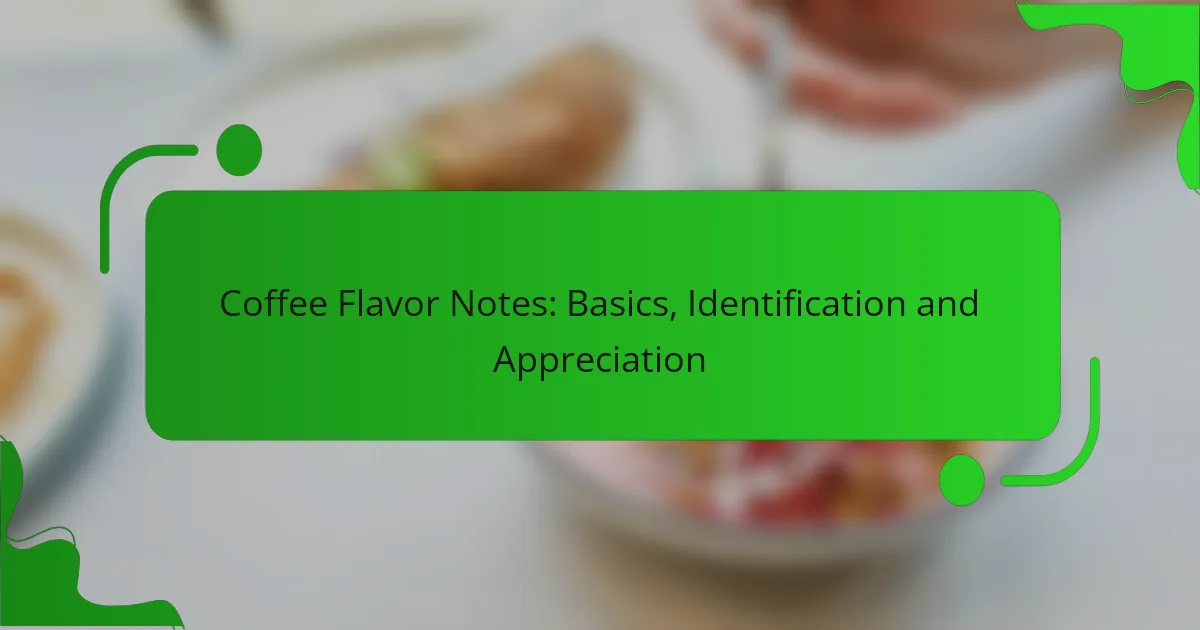Professional coffee tasters play a vital role in ensuring the quality and flavor of coffee products, particularly in bustling coffee hubs like Los Angeles. With a refined palate and extensive knowledge of coffee origins and brewing methods, they systematically evaluate various beans to assess their flavor profiles and maintain industry standards.

What are the roles of professional coffee tasters in Los Angeles?
Professional coffee tasters in Los Angeles play crucial roles in ensuring the quality and flavor of coffee products. They assess various coffee beans, provide insights on flavor profiles, and help maintain industry standards.
Cupper
A cupper is primarily responsible for tasting and evaluating coffee samples to determine their quality and flavor characteristics. This role involves using standardized methods to brew coffee and assess its aroma, acidity, body, and aftertaste. Cuppers often participate in cupping sessions, where they compare multiple samples side by side.
In Los Angeles, cuppers may work with local roasters or coffee shops, providing feedback that influences purchasing decisions and product development. Their evaluations help ensure that only the best beans are selected for roasting.
Quality control specialist
Quality control specialists monitor the consistency and quality of coffee throughout the production process. They conduct regular taste tests and analyze coffee samples to identify any defects or variations from established standards. This role is essential for maintaining the reputation of coffee brands.
In Los Angeles, these specialists often collaborate with roasters and suppliers to implement quality assurance protocols. They may utilize tools like moisture meters and color analyzers to ensure that coffee meets specific criteria before reaching consumers.
Flavor profile analyst
Flavor profile analysts focus on identifying and documenting the unique flavor characteristics of different coffee varieties. They develop detailed flavor profiles that describe the sensory attributes of each coffee, including notes of fruit, chocolate, or spices. This information is valuable for marketing and product development.
In the competitive Los Angeles coffee market, having a well-defined flavor profile can help brands differentiate their products. Analysts may also work with baristas to create signature drinks that highlight specific flavor notes.
Training facilitator
Training facilitators educate others in the coffee industry about tasting techniques and sensory evaluation. They conduct workshops and training sessions for baristas, roasters, and coffee enthusiasts, emphasizing the importance of tasting skills and quality assessment.
In Los Angeles, these facilitators often partner with coffee schools and organizations to promote best practices in coffee tasting. Their training helps elevate the overall quality of coffee service in the city.
Market consultant
Market consultants provide insights into consumer preferences and industry trends, helping coffee businesses make informed decisions. They analyze market data and conduct taste tests to understand what flavors and qualities are currently in demand.
In a dynamic market like Los Angeles, consultants play a vital role in guiding brands on product development and marketing strategies. They may recommend specific coffee blends or flavor innovations based on emerging trends and consumer feedback.

What skills are essential for coffee tasters?
Essential skills for coffee tasters include a refined palate, extensive knowledge of coffee origins, an understanding of various brewing methods, and strong analytical abilities. These skills enable tasters to evaluate and appreciate the complexities of coffee flavors and aromas effectively.
Palate development
Palate development is crucial for coffee tasters as it involves training the taste buds to identify subtle flavors and aromas in coffee. This process can take time and practice, often requiring tasters to sample a wide range of coffees to build their sensory vocabulary.
Regular cupping sessions, where tasters evaluate different coffee samples, help enhance palate sensitivity. Tasters should focus on identifying specific flavor notes, such as fruity, nutty, or chocolatey, and learn to distinguish between various acidity levels and body types.
Knowledge of coffee origins
A deep understanding of coffee origins is vital for coffee tasters, as the region where the coffee is grown significantly influences its flavor profile. Different countries and even specific regions within those countries produce beans with distinct characteristics due to variations in climate, soil, and processing methods.
Tasters should familiarize themselves with major coffee-producing regions like Ethiopia, Colombia, and Brazil, as well as the unique attributes of beans from each area. This knowledge allows tasters to make informed evaluations and appreciate the diversity of coffee.
Understanding of brewing methods
Understanding various brewing methods is essential for coffee tasters, as the preparation technique can greatly affect the final flavor of the coffee. Different methods, such as pour-over, French press, and espresso, extract flavors in unique ways, leading to varied tasting experiences.
Tasters should experiment with multiple brewing techniques to see how they impact flavor and aroma. Knowing the ideal grind size, water temperature, and brewing time for each method can help tasters achieve the best results and refine their evaluations.
Analytical skills
Strong analytical skills are necessary for coffee tasters to assess and articulate their findings effectively. This includes the ability to break down complex flavors and aromas into understandable components and communicate those observations clearly.
Tasters should develop a systematic approach to evaluating coffee, using a standardized scoring system to rate attributes like aroma, acidity, body, and aftertaste. This structured method helps ensure consistency in evaluations and provides a framework for comparing different coffees.

How do professional coffee tasters evaluate coffee?
Professional coffee tasters evaluate coffee through a systematic process that includes assessing flavor, aroma, acidity, body, and aftertaste. Each of these elements contributes to the overall quality and character of the coffee, allowing tasters to provide detailed feedback and recommendations.
Flavor assessment
Flavor assessment involves identifying and describing the various taste components present in the coffee. Tasters look for a balance of sweetness, bitterness, and acidity, as well as specific flavor notes such as fruity, nutty, or chocolatey. A common approach is to use a flavor wheel, which helps tasters pinpoint distinct flavors and their intensities.
When evaluating flavor, it’s essential to consider the origin of the coffee, as different regions produce beans with unique flavor profiles. For instance, Ethiopian coffees often have floral and fruity notes, while Brazilian coffees may lean towards chocolate and nut flavors.
Aroma analysis
Aroma analysis is crucial in coffee tasting, as much of what we perceive as flavor comes from aroma. Tasters inhale the coffee’s scent before tasting, identifying various aromatic compounds. Common descriptors include floral, fruity, earthy, and spicy notes.
To enhance aroma analysis, tasters often use freshly ground coffee, as grinding releases volatile compounds. It’s recommended to evaluate aroma both before brewing and after brewing, as the scent can change significantly during the brewing process.
Acidity and body evaluation
Acidity and body evaluation focuses on the coffee’s mouthfeel and brightness. Acidity refers to the sharpness or liveliness of the coffee, while body describes its weight and texture on the palate. A well-balanced coffee typically has a pleasant acidity that complements its body.
For practical assessment, tasters often categorize acidity as low, medium, or high. A coffee with high acidity might be described as crisp or vibrant, while low acidity could be smooth or mellow. The body can range from light to full, influencing the overall drinking experience.
Aftertaste examination
Aftertaste examination, or “finish,” refers to the flavors that linger on the palate after swallowing. Tasters evaluate the length and quality of the aftertaste, noting whether it is pleasant or unpleasant. A desirable aftertaste is often complex and can enhance the overall enjoyment of the coffee.
Common terms used to describe aftertaste include clean, lingering, or syrupy. Tasters should pay attention to how long the aftertaste lasts and whether it evolves over time, as this can indicate the quality of the coffee and its potential for enjoyment.

What certifications are available for coffee tasters?
Several certifications exist for coffee tasters, each focusing on different aspects of coffee evaluation and sensory skills. These certifications can enhance a taster’s credibility and knowledge, making them more effective in their roles.
Specialty Coffee Association certification
The Specialty Coffee Association (SCA) offers a comprehensive certification program that covers various aspects of coffee tasting and evaluation. This program includes courses on sensory skills, coffee processing, and brewing techniques, allowing tasters to develop a well-rounded understanding of specialty coffee.
Participants can earn different levels of certification, from foundational to advanced, depending on their experience and expertise. Completing these courses can significantly improve a taster’s ability to identify flavor profiles and quality indicators in coffee.
Barista Guild certification
The Barista Guild, part of the Specialty Coffee Association, provides certifications specifically tailored for baristas and coffee professionals. This certification emphasizes practical skills, including tasting techniques and the ability to evaluate coffee quality through sensory analysis.
Barista Guild certifications are structured in tiers, allowing individuals to progress from basic to advanced levels. This pathway helps coffee professionals refine their tasting skills while gaining hands-on experience in various coffee preparation methods.
International Coffee Organization training
The International Coffee Organization (ICO) offers training programs that focus on coffee quality and sensory evaluation. These programs are designed for professionals in the coffee industry, including tasters, to enhance their understanding of coffee grading and quality assessment.
ICO training often includes workshops and seminars that cover international coffee standards and practices. Engaging in these training sessions can provide valuable insights into global coffee markets and improve a taster’s ability to assess coffee from different origins.

What is the typical career path for coffee tasters?
The career path for coffee tasters often begins with a strong foundation in coffee knowledge and sensory skills. Many start as baristas or in related roles before progressing to cupping and tasting positions, often requiring formal training or certification.
Education and Training
A background in food science, agriculture, or culinary arts can be beneficial for aspiring coffee tasters. Specialized training programs, such as those offered by the Specialty Coffee Association, provide essential skills in sensory evaluation and coffee preparation.
Many coffee tasters also pursue certifications like the Coffee Quality Institute’s Q Grader program, which enhances their credibility and expertise in the field. Continuous education through workshops and tastings helps refine their palate and understanding of coffee profiles.
Entry-Level Positions
Entry-level positions for coffee tasters typically include roles such as quality control technician or coffee buyer. These roles involve assessing coffee quality, conducting cuppings, and learning about sourcing and roasting processes.
Gaining experience in these positions allows tasters to develop their sensory skills and knowledge of coffee origins, which is crucial for advancing in their careers.
Advancement Opportunities
With experience, coffee tasters can advance to roles such as coffee roaster, sensory analyst, or quality assurance manager. These positions often involve more responsibility, including overseeing quality standards and training new tasters.
Networking within the coffee industry and participating in competitions can also open doors to higher-level positions, such as coffee consultant or educator, where they can share their expertise with others.
Industry Insights
The coffee industry is evolving, with increasing demand for specialty coffee and sustainable practices. Coffee tasters must stay informed about trends, consumer preferences, and innovations in coffee production.
Building a strong personal brand through social media or industry events can enhance visibility and career prospects. Engaging with the coffee community fosters connections that can lead to new opportunities and collaborations.



